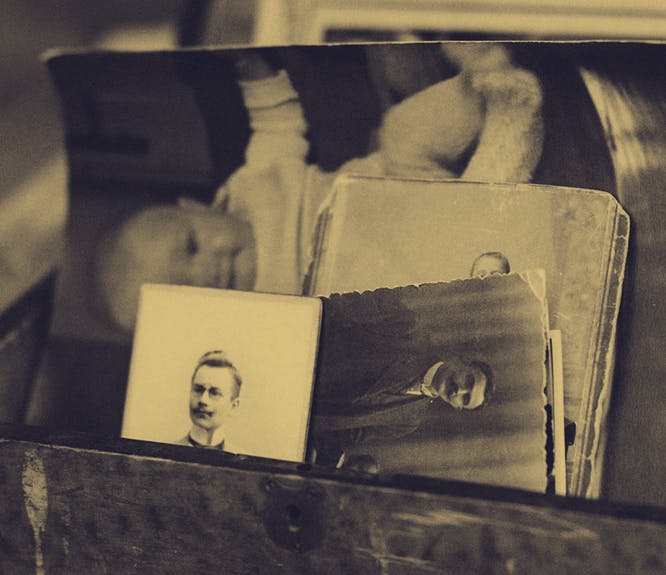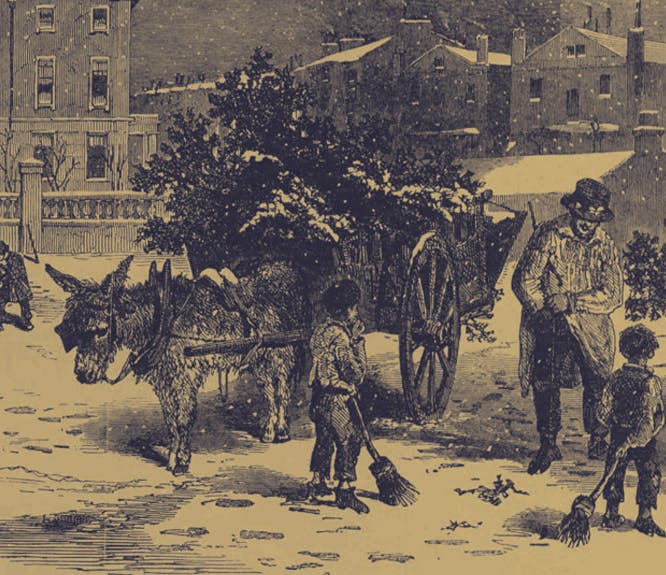This ‘ruthlessly imaginative’ professor made predictions for 2025 – and they’re spookily accurate
6-7 minute read
By Ellie Ayton | December 26, 2024

In 1925, an eccentric inventor published a list of predictions for 100 years hence, titled ‘The Future’. Looking back, some of his predictions were uncannily on the mark.
What will life be like a century from now? We ask this question today, and it’s long perturbed our ancestors too. Our newspaper archive is full of predictions for the future – some hugely off-piste, and others scarily true.
But in 1925, one man was making the headlines for his 2025 prophecies… Who was he, and did any of his predictions come true?
Professor Archibald Montgomery Low was born in 1888 and became an engineer, research physicist, inventor and author of over 40 books over his lifetime. He was a pioneer in many fields, inventing the first powered drone and working on the development of television.

Professor Low, pictured in Daily Mirror, 23 November 1949.
He has been called the "father of radio guidance systems" due to his pioneering work on planes, torpedoes boats and guided rockets. However, he was viewed with some skepticism by peers during his lifetime, exacerbated by the fact he called himself “Professor” despite not holding the academic credentials to do so.
His ideas were widely reported by the newspapers at the time, with some journalists commenting on the outlandishness of his predictions. While there are some ideas that could be dismissed – as one journalist put it – as “ruthlessly imaginative”, including everybody wearing synthetic felt one-piece suits and hats, others are spookily on the mark.
Professor Low’s top predictions for 2025
TVs and home speakers
In a prediction that feels almost mundane, Professor Low explains how home loudspeakers and TV will replace newspapers to access information and entertainment.

Westerham Herald, 11 July 1925.
It’s perhaps unsurprising that Professor Low predicted the popularity of TVs – today totaling 97% of households in the UK – due to the fact that he was involved in their development before the First World War.
In 1914, he gave the first demonstration of what was to become television, calling it ‘TeleVista’.

Civil & Military Gazette (Lahore), 25 June 1914.
In fact, due to Low’s ingenuity and work on this wireless technology, he was the subject of several assassination attempts by the Germans during the First World War, particularly as he was working on potential weapons such as guided missiles.

Daily News (London), 24 October 1914.
In October 1914, two attempts were made on his life: shots were fired through the window of his laboratory, and a German visitor offered him a cigarette laced with strychnine chloride. And in fact, during the Second World War, the Germans made use of Low’s 1918 design for a rocket guidance system.
Escalators and mobile phones
Another of Professor Low’s predictions was that we would have ‘moving sidewalks’ to save us from exertion – essentially the escalators and travelators commonplace today.

Fascinatingly he also touches on possible mobile phone technology, calling them “automatic telephones” and noting that the main benefit would be getting the right number every time – no doubt reflecting the frustrations of using the 1920s rotary dial phones.
Green energy and the rise of machines
One surprising prediction was that energy would be harnessed from wind and tides by 2025.
This uncanny prophecy is almost spot on: the UK is already the world's sixth largest producer of wind energy, and earlier this month the government recently its new ‘Plan for Change’ which positions clean energy as the key for future household energy with major investment in offshore wind, solar, and green hydrogen.

Not only this, but Professor also Low goes on to predict the use of machines to deliver 'heavy and disagreeable work’, at which the paper suggestions unfavourable effects ‘to the health of mankind physically and morally’.
Daily lie-ins, massages, and light treatments
Professor Low predicts that wireless technology will also be used as a handy alarm clock for the people of 2025, and gives a hopeful prediction that this will be set to “probably nine-thirty".

Before the rise of automated alarms, people would be woken in the early morning for work by a ‘knocker upper” - a person with the dedicated job of going from house to house tapping their long wooden stick on the windowpanes to rouse the household. This would not die out in Britain until the 1940s and 50s, with the last knocker-uppers recorded up until the 1970s.

© Beamish, The Living Museum of the North: Mrs Bowers, a knocker-upper in Co. Durham
Another unusual prediction from Professor Low was that people would enjoy a “radio light treatment or massage” every morning as a healthcare routine. While Low may have simply been projecting the health benefits of some of the radio technology he was developing, he tapped into a more modern health and wellness trend.
Glasses for cinema viewing
One of the more outlandish ideas for future technology by Professor Low was his predictions for cinemas. He saw theatre-goers of the future settling down to a screen showing multiple movies playing simultaneously, and donning special glasses that could be tuned into their chosen film.

While modern cinemas offer a much larger range of films to choose from, Professor Low’s predictions for “observation apparatus” sadly remain in his imagination, save for the rise of 3D experiences in IMAX theatres.
More about the eccentric professor
The man who made these ‘outlandish’ predictions for the future led a life just as scandalous. From going to school with the future WW2 general Bernard Montgomery, to his divorce being splashed across the newspapers, we traced fragments of his life using family history records.

Low in the 1921 Census, listing himself as a married professor living with his private secretary.
His wife, Amy, divorced him in 1936 on grounds of adultery with two other women. The news hit headlines far and wide. She was the girl next door, and they’d met when she was 21.

News of the Professor’s divorce in Somerset Guardian and Radstock Observer, 29 May 1936.
It appears their marriage survived the scandal, as a year later the decree for their divorce was rescinded. There was hope for ‘reconciliation’.
Amy died in 1953 after being hit by a motorcycle. The professor himself died three years later. By 1958, a book was published about his life and achievements.

Bookseller, 8 February 1958
Fancy exploring some more predictions for 2025 from history?
If you spot any good ones, we'd love to know. Share them with us on social media by tagging @findmypast.
Related articles recommended for you

Four simple steps to starting your family history journey
Getting Started

Five Christmas recipes from history you can make and enjoy today
History Hub

How to use the free Findmypast app for on-the-go family history
Getting Started


